So, you think you could be PVC of FMS?
As part of our series, Demystifying Senior Leadership, we spoke to our very own PVC, Professor David Burn, about his role.

What are your main responsibilities?
Primarily, the day to day running of the Faculty, to set the strategy of the Faculty in consultation with others, and to be responsible to the VC and the Executive Board of the University.
That’s the attraction of a job like this; there’s obviously some structure to it, but there isn’t really an average day. Every day is different, and that’s what helps get you out of bed in the morning – it’s really great. They’re long days, there’s no question about it, but they’re very varied!
What made you want to apply for the role?
I know it sounds a bit trite, but I really felt I could make a difference!
Newcastle University has a fabulous reputation throughout all the region, and my family and friends nearly all live in the region. Trying to translate some of our great work out into the region, to make a real difference here, first and foremost, as well as beyond, is something I really feel passionately about.
What do you enjoy most about the role?
Probably the interaction with a large number of people. It’s really great to be able to talk to people, and to hear things, and to feel part of networks. I’m able to tap into lots of different sources, which means it’s uncommon that I hear something that completely blindsides me, and also means I’m able to take a helicopter view, to connect people in a way that they may or may not have thought about, which is such a nice thing.
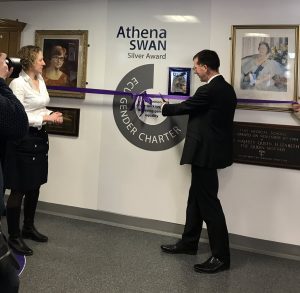
I feel that a get a lot of job satisfaction from the role. It’s the little things, like trying to ensure people feel that their voices are heard, celebrating our successes, and just reinforcing the very positive, inclusive, and transparent culture we’ve got in this Faculty.
What’s the role taught you about the Faculty and University?
Well, it doesn’t get any easier the higher up the chain you get, that’s for sure! Processes, and systems, and ways of getting things through at University Executive Board can seem circuitous and tortuous and, at times, as opaque as when you’re putting in a grant in as a PI!
It’s also taught me that you’ve probably got to be quite broad church in your views, and a good listener, and broadminded. I get people coming in from all different walks of life and everybody has a slightly different agenda, or something they feel passionately about, which you have to accommodate. I’ve had to realise that sometimes you can’t always get everything that you want for your Faculty; that sometimes you have to do it for the common good of the University and take the important ‘One University’ approach.
What has the role taught you about yourself?
It’s taught me that I’ve got a greater capacity to do things than I thought, because I’ve never worked as hard as in this role, and I’ve never encountered more challenging situations!
I think it’s taught me that you’ve got to be, at times, a little thick-skinned, and realise, like Abraham Lincoln said, that you just can’t keep all the people happy all of the time. It doesn’t stop you from trying, but at times you’ve just got to do what you think is right.
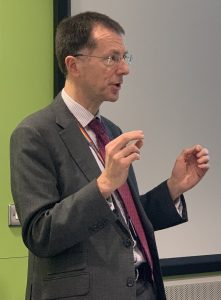
What learning opportunities do you feel have helped prepare you for this role?
Learning opportunities are something that I feel are very important. I’ve been very lucky over the years, going back to when I was an Institute Director, or even before that, when I attended Leadership Development Courses and the like.
I also took myself off and had some discussions about strategy setting and had ongoing coaching. I’ve had an informal network of mentorship, which I’ve largely established myself, mainly through people outside Newcastle, and I’ve always found that to be very helpful. They are people who I look up to and respect, and who’ve always given very good advice – not just on work decisions, but on work-life things as well. I certainly see the value of mentorship, and am now a mentor myself through the Academy of Medical Sciences’ IHR Scheme.
What have you found most challenging in the role?
Most definitely it has been the sheer intensity of it, and the length of the days. A lot of time is spent Chairing meetings, so there’s very little downtime between and it’s very physically tiring.
Also, nobody likes confrontation or making tough decisions that will impact on people, but unfortunately, in a job like this, you just can’t avoid that. I think that’s something you always reflect on and think could I have done that better? Or: could I have had that conversation better? That’s been the element the role that I’ve lost some sleep over.
Where do you find support when facing challenges in your role?
You can’t beat your peer support group. This does shrink, the higher up the chain you go, so my main peer support is currently the two other Faculty PVCs, and I’m very blessed there as they are lovely people.
I would also count Julie Sanders, who was formerly the PVC in HASS, as a really great friend and colleague, to some degree a confidante, and a real source of good, sensible, impartial advice. I also I have huge respect for, and would count as a friend and colleague, the VC. For real get-away-from-it type of conversation, and to let off steam, I would say the other Faculty PVCs and the VC would be probably my best source of support there really.
Finally, I have a number of people who I can bounce things off and talk to, particularly within the Professional Staff and Dean Team here.
 How to you balance the role with your research, hobbies and family?
How to you balance the role with your research, hobbies and family?
My research has largely withered. If you want to be research or clinically active, a role like this really is not compatible sadly. To do it fully and thoroughly I think you’d struggle. I do carry on contributing to papers and outputs for people who work with me, but the amount of time you can contribute is difficult. I have other major external commitments. I’ve recently been appointed Chair of the NHSA Board, and am a Trustee of Parkinson’s UK. I’m also President of the Association of British Neurologists, which is a pretty big job. So that’s squeezed out other internal things like research.
You should also never lose sight of your family. We don’t have children, but my wife is absolutely outstanding. She works full time herself and she’s incredibly supportive; the worst guilt I can experience is feeling that I’m not giving her enough time. Work-life balance is so important.
I’ve always loved running and cycling, I like keeping myself fit. I also really love listening to and making music, and trying to learn guitar. I’ve got it all mapped out for when I retire though. I’m going to do more photography, and I’m going to try to get music lessons and do some multitracking. And also, construct a model railway; I’m determined to build a real-life model based on a line in Ireland. I think it’s really important to have some little things to aspire to in the future in that way.
When your role finishes, will you miss it?
Hm, interesting question. I think the answer is yes, obviously I will, because of the intellectual stretch that it gives me; that is something that gives you quite a buzz. In some of the harder moments, or times when there’s been a conflict or confrontation, I guess at those times if you ask me that question, I would say I absolutely won’t. But by large, yes, I think most people would miss a job like this.
What advice would you give to your successor?
I would say be true to yourself and be your own person.

And listen to colleagues – you just can’t know everything. I’ve got a wonderful team of people at Dean-level and School Director/Head-level, and they’ve all got amazing skill sets. The success of the Faculty comes from that.
When it comes to appointing my replacement, it would be fabulous if we could have some really strong internal candidates from very diverse backgrounds. There are several people in this Faculty who can do the job, I am absolutely convinced of it. If I could help bring through people who are capable of taking a PVC role, and particularly women, that would be a great legacy to leave.
Thank you so much to David Burn for taking time out of his busy schedule to speak to us about his role! We hope this empowers you to take all opportunities for development available – you never know where you’ll end up!
 On 21st September 2019, Newcastle University Medicine Malaysia (NUMed) turned 10. Since welcoming its first cohort of students in September 2009, this first international branch campus of Newcastle University has been delivering exceptional medical education in Malaysia, extending the legacy to the Southeast Asian region. NUMed’s global community of students, faculty, staff and alumni convened to celebrate this momentous milestone, which was marked by a medley of local cultural performances and moving speeches by international and local leaders in education. Prof. Baldwin imparted his thoughts on what he observed were the makings of NUMed’s success: the excellence of all its staff, both academic and professional; the cooperation between NUMed, Newcastle University, UK, and NUMed’s partners in Malaysia; and the openness and collegiality of the NUMed community, whether international or local.
On 21st September 2019, Newcastle University Medicine Malaysia (NUMed) turned 10. Since welcoming its first cohort of students in September 2009, this first international branch campus of Newcastle University has been delivering exceptional medical education in Malaysia, extending the legacy to the Southeast Asian region. NUMed’s global community of students, faculty, staff and alumni convened to celebrate this momentous milestone, which was marked by a medley of local cultural performances and moving speeches by international and local leaders in education. Prof. Baldwin imparted his thoughts on what he observed were the makings of NUMed’s success: the excellence of all its staff, both academic and professional; the cooperation between NUMed, Newcastle University, UK, and NUMed’s partners in Malaysia; and the openness and collegiality of the NUMed community, whether international or local.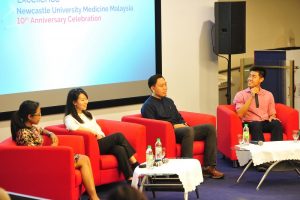 Fast forward ten years, and the FMS EDI Team and the School of Medical Education Academic EDI Lead have been proud to support colleagues at NUMed to form their own EDI committee comprising 11 members of staff, a mixture of PS and academic staff plus two students. The team at Malaysia took the initiative to hold discussions with their counterparts in Reading and Southampton prior to setting up the EDI committee. These two campuses, along with Nottingham and Herriot-Watt, do not have local EDI committees, as a result NUMed has been a trailblazer, as the first campus in the region to look at EDI from a local perspective.
Fast forward ten years, and the FMS EDI Team and the School of Medical Education Academic EDI Lead have been proud to support colleagues at NUMed to form their own EDI committee comprising 11 members of staff, a mixture of PS and academic staff plus two students. The team at Malaysia took the initiative to hold discussions with their counterparts in Reading and Southampton prior to setting up the EDI committee. These two campuses, along with Nottingham and Herriot-Watt, do not have local EDI committees, as a result NUMed has been a trailblazer, as the first campus in the region to look at EDI from a local perspective.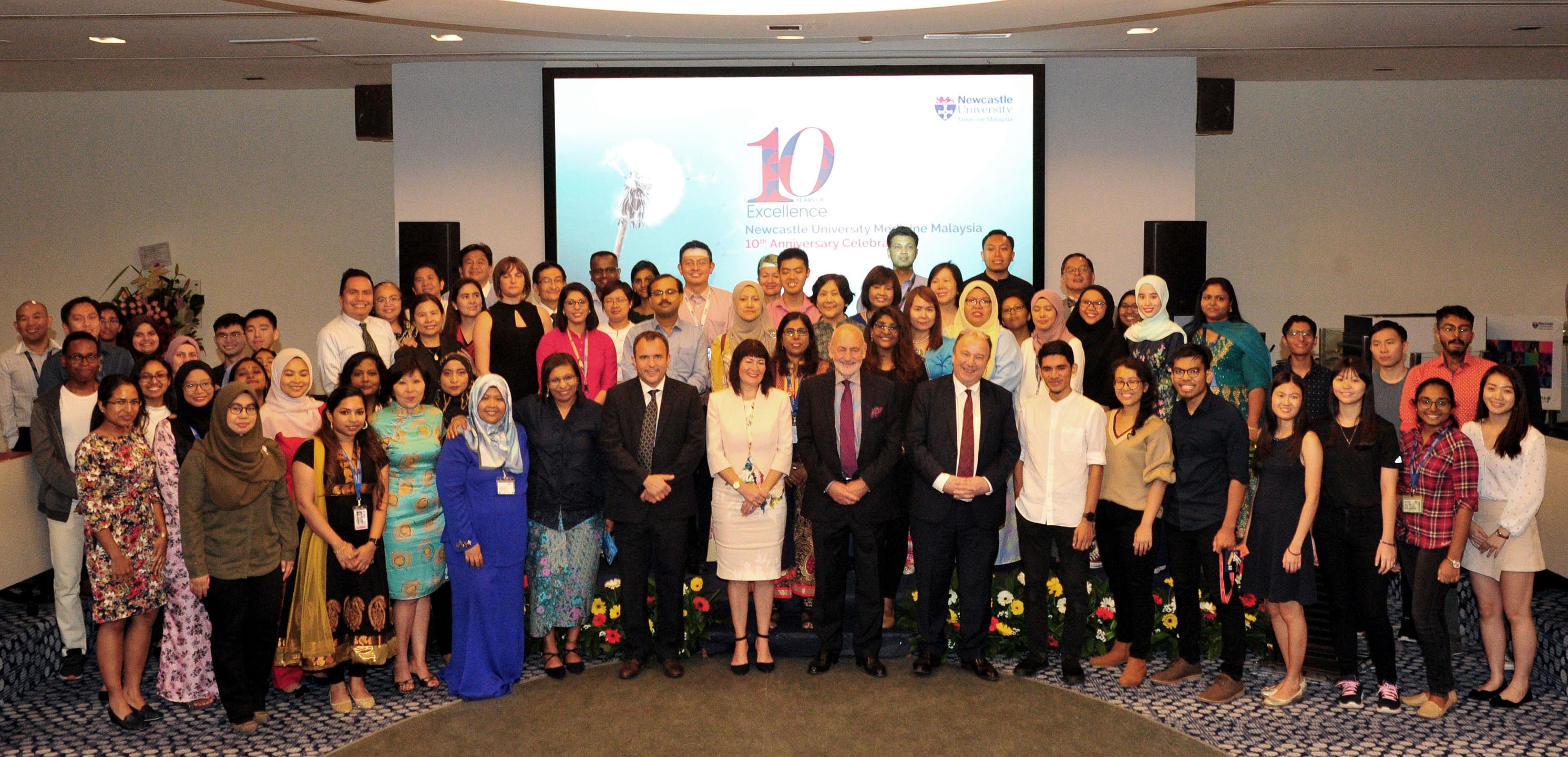


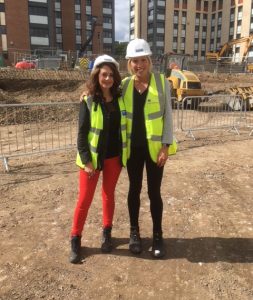
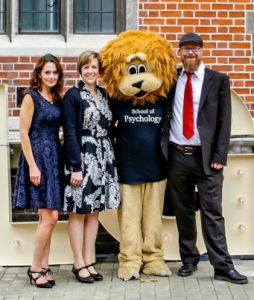
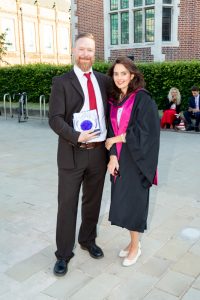 What advice would you give to your successor?
What advice would you give to your successor?


 How to you balance the role with your research, hobbies and family?
How to you balance the role with your research, hobbies and family?
 Continuing with our Flexible Working
Continuing with our Flexible Working 
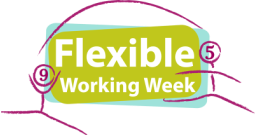 Thank you so much to Christina, and we wish her continued success working flexibly in her career!
Thank you so much to Christina, and we wish her continued success working flexibly in her career!

 Where did you find support with working part time?
Where did you find support with working part time?